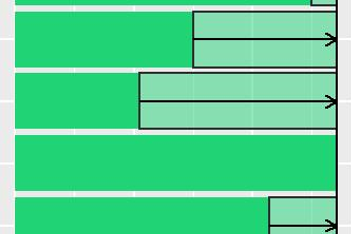
Decision Making Blog #4: Embrace uncertainty - it's a badge of honour
Imagine this:

Decision Making Blog #3: The black hole of the status quo
Learning is one of the joys of teaching. And I’ve learnt a lot while helping people develop their decision making skills.

Decision Making Blog #2: Two under-appreciated sources of leadership power
Some forms of leaders’ power are obvious. Leaders hire and they fire.

Decision Making Blog #1: Better decision making: a neglected route to improvement?
There are two main routes for health and care services to improve the health of the populations they serve. The

Analysts, we need to talk about…….
The future looks incredibly promising for ana

Socio-economic inequalities in coronary heart disease
There are substantial differences in mortality rates from cardiovascular disease between socio-economic groups. Our new tool provides an overview, for ICBs, of the points on the care pathway where inequalities emerge and are amplified

Insight 2022 - Day 4 - The future of healthcare analytics
The future of healthcare analytics.

What are the ethical challenges in addressing inequities?
Produced by Angie Hobbs - the world’s first Professor in the Public Understanding of Philosophy – this paper examines the ethical questions raised by our report outlining strategies for reducing inequity.

Infant-feeding problems during the pandemic
Emergency department attendances fell dramatically and systematically during the early phases of the COVID-19 pandemic. This effect was almost universal, affecting people from all parts of society and for all health conditions. But in our recent paper we highlight one notable exception to this rule -presentations at Emergency Departments for infant-feeding problems increased during the pandemic.

What was the question again?
We hear a lot about what’s stopping the NHS making the most of its army of talented analysts. Some say we just need more data, or data of better quality. Others point to deficiencies in our infrastructure, IT kit or the software we use. But I’m not so sure. For me the biggest shortfall is in good questions that we can feasibly address.

Inequalities in access to healthcare - what’s our next move?
Our research, published in the Lancet Regional Health Europe, highlights substantial inequities in access to elective hip replacement surgery. We found no evidence that these inequities reduced between 2006 and 2016.

Blog: Strategies to reduce inequalities in planned care
MDSN responds to recent reports addressing the NHS waiting list crisis

Strategies to reduce inequalities in access to planned hospital procedures
UPDATE 10th August: Now including briefing note for Integrated Care Boards on legal duties in respect of reducing inequalities. This report guides ICBs through the process.

We saw them before they were famous: reflections on AphA’s away day
In June 1976, the Sex Pistols played Manchester's Lesser Free Trade Hall.

Strategies to reduce inequalities in access to planned hospital procedures
In our 2021 report, we described how people living in more deprived areas have poorer access to planned hospital care than their more affluent counterparts.

The Intellectual Forum: a source of fresh perspectives on decision making
The literature on decision making is like a disaster movie highlights reel. Barely has one calamity registered before another serious misstep takes its place. Case study after case study flashes past, each with its own lessons and warnings.

Advancing the analytical capability of the NHS and its ICS partners
The Strategy Unit were asked by the Strategy and Development Team in the Directorate of the Chief Data and Analytics Officer, NHSE/I, to make recommendations for advancing analytical capability across the health and care workforce.

Securing the future of domiciliary care
The Strategy Unit is embarking on an exciting project with WM ADASS, the Association of Directors of Adult Social Care Services in the West Midlands to explore the challenges facing domiciliary care and the opportunities that exist to transform and improve the service.
